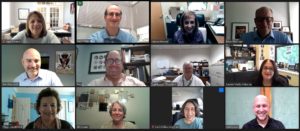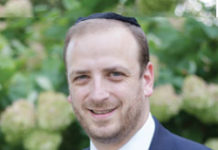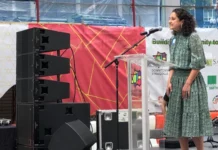On March 13, 2020, Ben Wachstein, president of the Delaware Valley Association of Synagogue Administrators, thought that the impending COVID-19 lockdown would last two weeks, and that area synagogues would resume normal activity by April.
The following week, Wachstein, along with the other DVASA members, realized that things weren’t going to be that easy.
Over the past 15 months, DVASA, a group of a dozen-or-so synagogue administrators across the region, went from meeting sporadically to Zooming weekly, sometimes more, trading tips and tricks on how to stay afloat during the pandemic — and forging deep connections with each other along the way.

At first, DVASA members were emailing each other ceaselessly, trying to make sense of the rapidly changing climate. Wachstein made the snap judgment to host weekly Zoom calls instead as a way of exchanging information and supplies more efficiently: Where were people getting hand sanitizer? Disinfectant wipes? Were they supposed to be wearing masks?
Wachstein feared for his employees safely.
Brian Rissinger, executive director at Reform Congregation Keneseth Israel and a DVASA member for 34 years, was challenged with laying off dozens of staff members.
Most shuls had to confront the operation of preschools. Many closed over the course of the pandemic and, when some reopened, administrators were tasked with designing procedures to keep both the children and staff safe.
DVASA’s direction quickly pivoted when shuls began to close indefinitely.
According to Wachstein, 20-30% of American synagogues were expected to shutter during the pandemic.
Few administrators knew how to apply for federal Payroll Protection Program loans and feared the worst for their synagogues. One member gave the others a crash course in applying for the loans, another taught them how to receive The Employee Retention Tax Credit. Wachstein said the synagogues saved thousands of dollars because of it.
Rissinger explained that because there isn’t a specific training regiment for administrators, some have backgrounds in business and facilities management, and others in social work or past leadership in their congregation.
“As a group, we are incredibly willing to share our experiences and information,” Rissinger said. “There’s nothing gained by being tight-lipped.”
Beyond career credentials, DVASA members represent a diversity of Jewish backgrounds. While national organizations such as the National American Association of Synagogue Executives and National Association of Temple Executives serve Conservative and Reform administrators, respectively, DVASA spans across denominations.
“We haven’t heard of any other local group developing and holding force to provide this type of camaraderie,” said Robin Minkoff, executive director of Beth Sholom Synagogue in Elkins Park. She has been a DVASA member for more than two years, the entirety of her tenure at Beth Sholom.
Jill Cooper, DVASA’s past president and executive director of Beth David Reform Congregation in Gladwyne for the past 14 years, believes that it’s DVASA’s commitment and connection to one another that sets them apart.
“We hold each other up, and we laugh, and we kibitz and we make fun of each other,” Cooper said.
Working up to 80 hours a week, Wachstein, who until recently was the executive director of Temple Sinai in Dresher before moving to Baltimore, was exhausted. One day, he remembers being too tired to speak. By the end of the day, he had received texts, calls and emails from DVASA members, all saying they were there if he needed them.
“I don’t think any of us would have gotten through any of this without each other,” Cooper said.
After running a synagogue with closed doors for so long, Wachstein, with the help of DVASA, is finally figuring out how to open them.
Last week, congregants at Beth El Congregation of Baltimore, the synagogue at which Wachstein is newly executive director, were able to attend in-person Friday night Shabbat services without having to preregister to attend. There were more than 100 attendees, and Wachstein swore he “could see smiles almost through their masks.”
Wachstein can breathe another sigh of relief. Between the two synagogues he worked for over the course of the pandemic, there were no workplace transmissions of COVID-19.
At this point, as administrators are busy planning high holiday services — online, in-person and hybrid — for this coming September, DVASA still holds meetings weekly over Zoom.
But Cooper hopes that doesn’t continue for too long: She’d rather have the next meeting in person.
[email protected]; 215-832-0741






